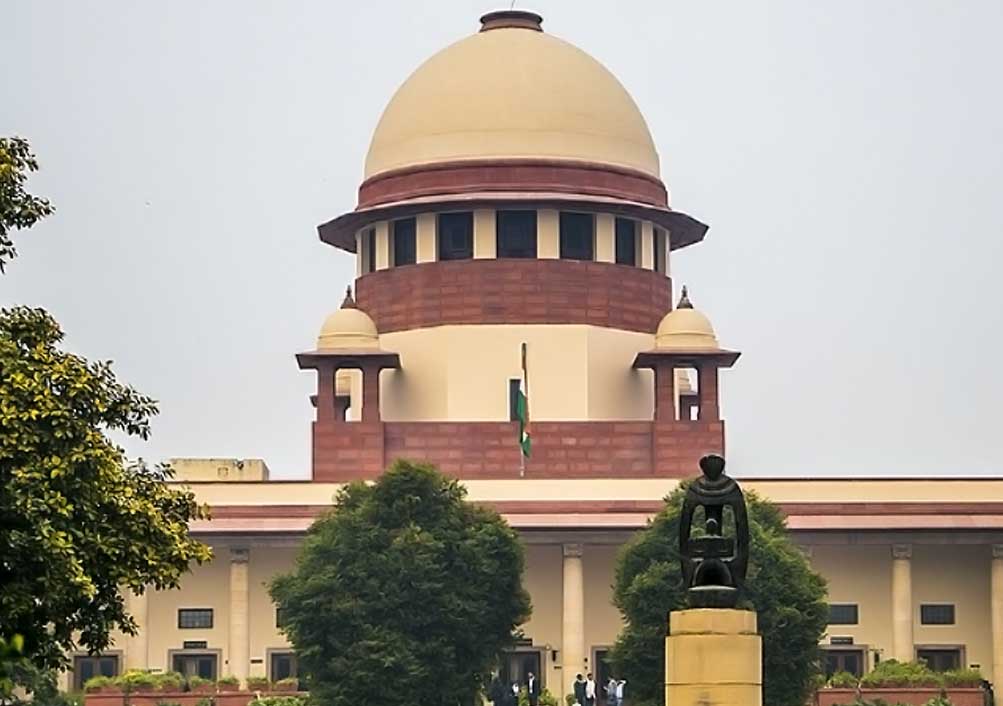No leniency can be shown to accused who has committed offence under POCSO Act, particularly when same is proved by adequate evidence before Court of law: SC

Read Judgment: Nawabuddin V. State of Uttarakhand
Pankaj Bajpai
New Delhi, February 9, 2022: In a case wherein the accused tried penetrative sexual assault with his finger and then tried to commit rape upon the minor girl, the Supreme Court has opined that such assault committed on a girl child aged four years can be said to be ‘aggravated penetrative sexual assault’ punishable u/s 6 of the POCSO Act.
A Division Bench of Justice M.R. Shah and Justice B.V. Nagarathna observed that act of sexual assault or sexual harassment to the children should be viewed very seriously and all such offences of sexual assault, sexual harassment on the children have to be dealt with in a stringent manner and no leniency should be shown to a person who has committed the offence under the POCSO Act.
Going by the background of the case, the daughter (victim girl) of the first informant (mother) was raped by Nawabuddin (Appellant) who was a neighbor. However, at that time the accused was spotted by some persons naked in the process of raping the victim girl, some people caught the accused red handed and handed him over to the police. Accordingly, an FIR was lodged by the mother of the victim girl for the offences punishable u/s 376 r/w/s 511 of IPC and Section 3 & 4 of the POCSO Act. After medical examination and recording of statement of victim girl and witnesses, charge-sheet was filed against the accused.
The Trial Court/Special Judge (POCSO Act) held the accused guilty for the offences punishable u/s 376(2)(i) of IPC and Section 6 of the POCSO Act, 2012 and sentenced the accused to undergo life imprisonment and also directed to pay monetary fine of Rs.50,000/-. The Trial Court also passed an order that out of the amount of fine of Rs.30,000/- to be paid to the victim girl as compensation. On appeal, the High Court confirmed the conviction of the accused and the sentence of life imprisonment. Hence, present appeal.
After considering the submissions, the Top Court found that there are concurrent findings recorded by both the Courts on appreciation of evidence on record to the effect that the accused tried to commit the offence of rape on the victim girl aged four years.
“It has been established and proved by the prosecution that the victim girl was lured by the appellant – accused; she was taken to the bushes; accused removed his own clothes as well as the clothes of the victim girl and fondled her private parts and penetrated his finger into the vagina of the victim girl. The same is fully supported by Dr. Vandana Sundriyal – PW 10, who examined the victim girl on 17.06.2016 and before whom the victim girl narrated the entire incident to her which was recorded in exhibit A6 – medical examination report”, noted the Court.
Therefore, speaking for the Bench, Justice Shah opined that it is safe to convict the accused relying upon the deposition of the doctor before whom the victim girl narrated the entire incident which was recorded in the medical examination report.
Since the sexual offences against children were not adequately addressed by the existing laws and a large number of such offences were neither specifically provided for nor were they adequately penalized, the POCSO Act has been enacted to protect the children from the offences of sexual assault, sexual harassment and pornography and to provide for establishment of special courts for trial of such offences and for matters connected therewith and incidental thereto, added the Bench.
Justice Shah observed that as per the amended Section 6 of POCSO with effect from Aug 16, 2019, the minimum punishment provided is twenty years and which may extend to imprisonment for life, which shall mean imprisonment for the remainder of natural life of that person, and shall also be liable to fine, or with death.
However, finding that the accused as of today is aged 70-75 years of age and he is also suffering from Tuberculosis, the Top Court opined that if the life sentence is converted to fifteen years RI and the fine imposed by the Trial Court confirmed by the High Court to be maintained, it can be said to be an adequate punishment commensurate with the offence committed by the accused.
Accordingly, the Apex Court upheld the judgment & order passed by the High Court and the Special Court convicting the accused for the offences punishable u/s 376(2)(i) of IPC and Section 5 of the POCSO Act and imposing the punishment u/s 6 of the POCSO Act.
Sign up for our weekly newsletter to stay up to date on our product, events featured blog, special offer and all of the exciting things that take place here at Legitquest.




Add a Comment